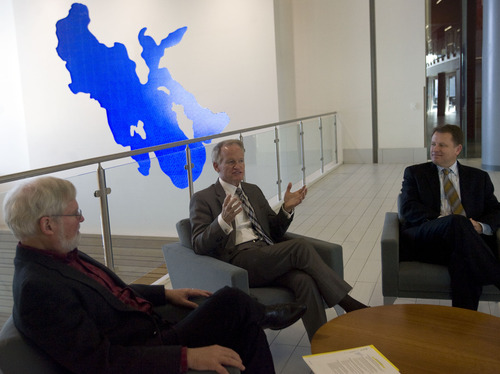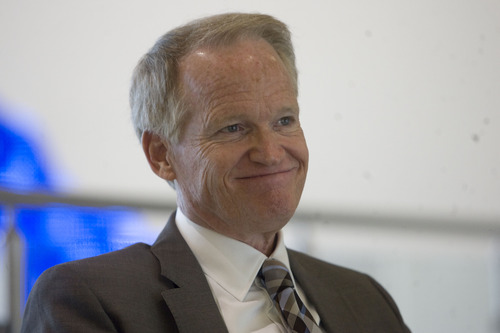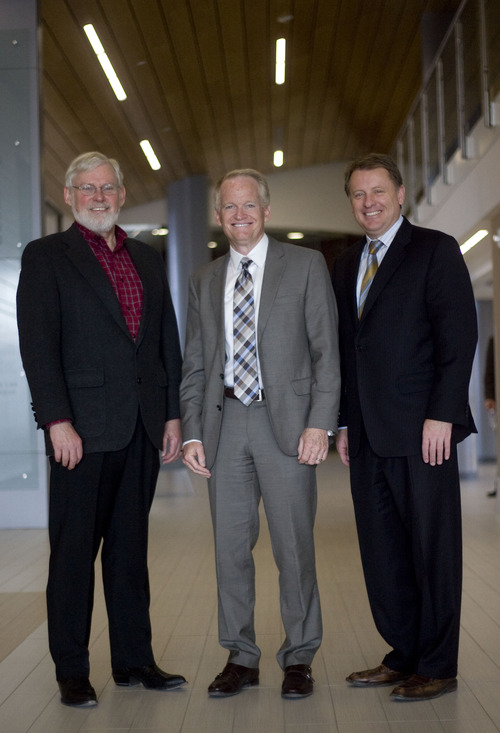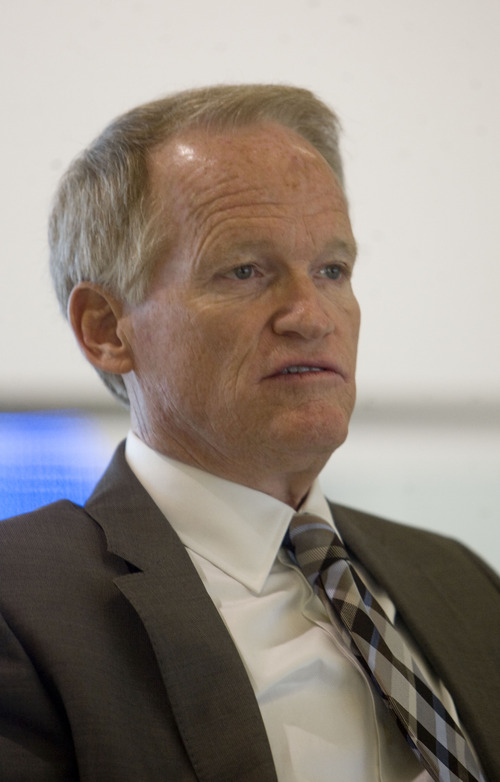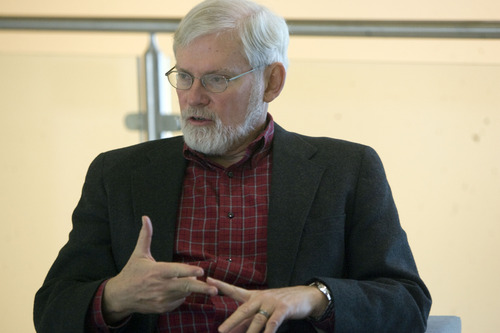This is an archived article that was published on sltrib.com in 2013, and information in the article may be outdated. It is provided only for personal research purposes and may not be reprinted.
A recent $7,000 loan to help buy raw materials doubled the revenue of a startup company in Bangalore, India, that manufactures bags made from banana fibers.
Haritha Enterprises employs 30 women and one man who fill a monthly standing order for 20,000 bags that are sold in IKEA home furnishing stores around the world.
Beginning Tuesday, similar investments for entrepreneurs, companies and organizations in ultra-poor communities will have a new place to get their start with the opening of the James Lee Sorenson Global Impact Center at the University of Utah's David Eccles School of Business.
Made possible by a $13 million personal gift from entrepreneur James Lee Sorenson, the center will train students at the U. and collaborating universities to create sustainable change on regional and global levels through social investment, innovative curriculum and research.
"The center will provide unparalleled experiences for our students and faculty to participate directly in solving some of the world's thorniest and most persistent societal problems," said David Pershing, president of the University of Utah. "[It] will be a global leader in the creation of new knowledge of how to solve widespread structural problems, while training a generation of transformative leaders in social impact investment."
An example of such investing is still another Sorenson project that helped fund Simpa Networks, which enables poor people in India to pay for solar home systems over time. So far, 1,000 units have been sold.
"Social entrepreneurship is something that is very close to my heart," said Sorenson, 62. "This venture has the potential to affect genuine societal change and improve the quality of life for countless individuals throughout the world."
The center will address problems that run the societal gamut, from providing health care and housing, to providing entrepreneurial training.
Over the past 35 years, Sorenson has built highly successful companies in industries ranging from technology and life sciences to real estate and private equity investment. He help developed several industry categories, including digital compression software at Sorenson Media, which posts videos to the Internet, and video relay services through Sorenson Communications, which provides products and services for the deaf and hard-of-hearing.
Sorenson will play an active role in setting the direction for the center and mentoring its students.
In addition to the investment component, the center will focus on research that fosters a greater understanding on how free enterprise can be employed to create large-scale societal change.
Impact investments bring returns, said center director Lewis Hower, adding that research is critical in attracting investors because returns are largely anecdotal.
An example is a Sorenson loan to Kinara Capital, an enterprise lender that has provided $206,000 in investments to small- and medium- sized business on the Indian subcontinent over the past 10 months. All loans have been repaid.
The center also will accelerate the work of the University Impact Fund, a joint venture launched in 2010 by the David Eccles School of Business, the Melvin J. Ballard Center for Economic Self-Reliance at Brigham Young University, Sorenson and global impact investor Geoff Woolley.
The fund brings university students, investors and social entrepreneurs together to develop the impact investing industry. The program partners with leading social investment firms, impact investors, social entrepreneurs and nonprofit organizations and foundations to identify, assist and fund social enterprises.
The fund is essentially an $18 million venture capital firm that got its start in 2001 with a $500,000 donation from Sorenson and his late father, James LeVoy Sorenson, a real estate magnate and inventor of numerous medical devices.
Going up east of the David Eccles School of Business is the Beverley Taylor Sorenson Arts & Education Complex, named in honor of James Lee Sorenson's mother. The estimated $24 million complex will serve as an academic hub of evidence-based, K-12 arts integration research, training, practice and advocacy.
Taylor Randall, dean of the business school, said thanks to the generosity of the Sorenson family, "many cranes have been working on the campus."
twitter@DawnHouseTrib —
Center information
The Sorenson Center for Global Impact Investing at the University of Utah's David Eccles School of Business was created through a $13 million personal gift from entrepreneur James Lee Sorsensen. What it does:
Research • Focuses on how free enterprise can create large-scale societal and environmental change, and disseminates applied market research to investors
Program • Trains students to direct loans to entrepreneurs, businesses and organizations in ultra-poor communities while generating a financial return
Joint venture • Also aimed at accelerating work of the University Impact Fund, which brings together groups to direct investments to social enterprises


